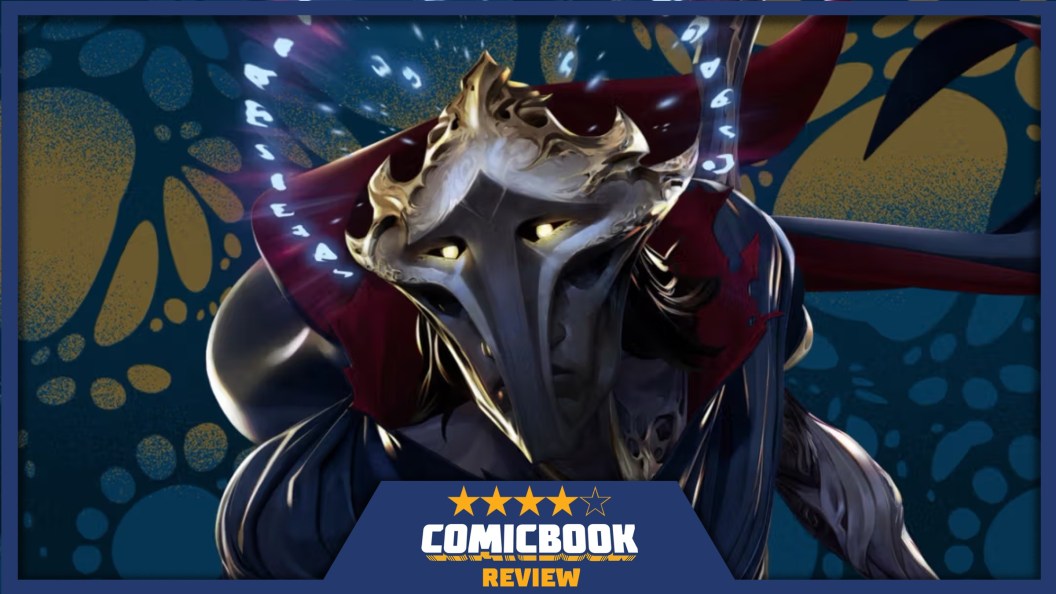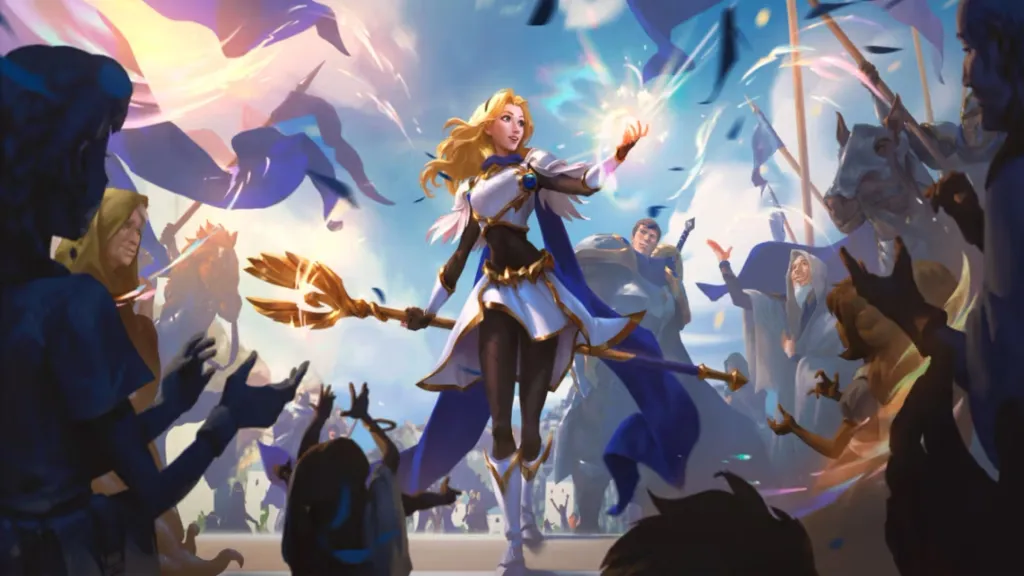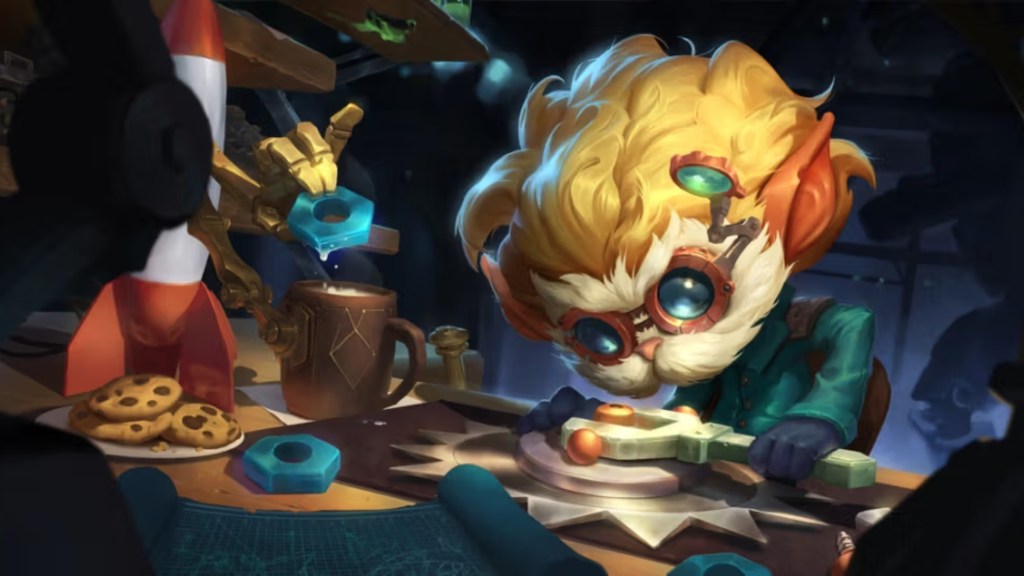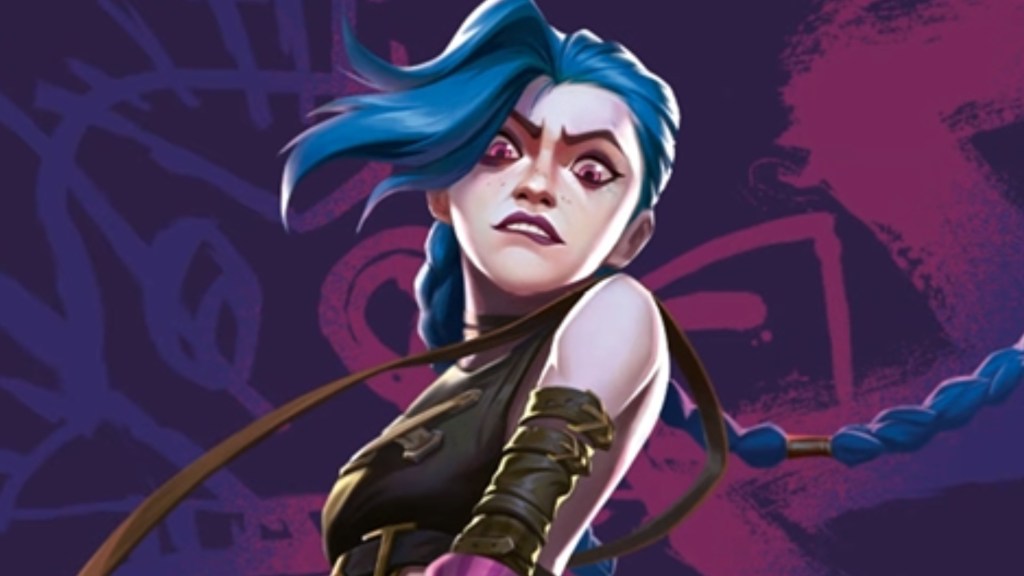Articles
Riftbound Is A Solid TCG Adaptation Of League Of Legends That Gets Better With Time (Review)

Riftbound is a solid new entry to the TCG environment that does a great job of bringing League of Legends to the tabletop gaming space. Designed as Riot’s answer to trading card games like Magic: The Gathering and Lorcana, Riftbound is all about translating the lane-based MOBA gameplay of League of Legends to a deck-building card game. It’s a tricky proposition, given that the title’s focus on single-character gameplay, where entire armies of minor NPC enemies and allies can rally to overwhelm a lane.
Luckily, Riot cracked the code with Riftbound, which quickly reveals itself to be an entertaining and fast-paced addition to the genre. Striking the right balance of in-depth strategy and all-out assaults, the game benefits from a mix of traditional deck-building gameplay and larger-scale board game mechanics to create something that genuinely feels unique. While it can be overwhelming at first, Riftbound is a great addition to any TCG fan’s collection.
Review: 4/5
| Pros: | Cons: |
| Gameplay depth that feels like a clever adaptation of the central mechanics of League of Legends. | New gameplay mechanics can be tricky to adjust to for seasoned TCG players. |
| Gorgeous artwork gives the game a stunning visual touch. | Champion Legend focus limits deck-building in certain ways. |
| Multiple gameplay styles add natural variety for 2-4 players. |
A New Champion Contender

Riftbound has a number of mechanics that can seem daunting to new players at first, but the title quickly proves to be a rewarding experience for gamers who are able to embrace the gameplay. While it features many of the standard unit/spell/weapon cards that track with other TCG games, the biggest tweaks on the formula add some fun depth to the title. The primary means of winning relies on players taking control of Battlefields, which come with each deck and are set between 2 to 4 players.
Taking control of a Battlefield often comes with a perk or advantage for the player, along with earning them a point. Points are also earned each turn that the player maintains control of the location. Once players earn 8 points, they win the game. Taking control of a battlefield away from the opponent sets off combat, which works in a similar way to the mechanics of something like Magic: The Gathering or Lorcana where stronger units, powerful spells, and useful tools are the key to victory. Games can include up to four players, although 1-on-1 duels are just as fun.
There’s a real sense of controlled chaos to the frequent combat and fast-paced moves, especially once deck strategies fully go into effect. The other big tweak is the focus on Champion Legends and Champion cards, which give each deck a distinct sense of flavor. It can limit the deck-building options, however. Choosing Lee Sin as a Champion Legend, for example, requires the player to use a Lee Sin unit as their Legend. It’s useful for players adjusting to the gameplay mechanics, as it limits the wild builds to specific approaches — but it can also limit the pure experimentation that is often the backbone of deck-building games.
It does play into the way that Riftbound is trying to replicate the spirit of League of Legends. This is the character the player is represented by most in the battlefield, matching the way the MOBA forces players to utilize a single champion to overtake hordes of minions, wild creatures, and the enemy team. The game’s focus on controlling locations gives it a level of separation from combat and planning assaults in the relative safety of one’s base space, lending an air of strategic movement to the gameplay that makes for a compelling change of pace. It’s an interesting way to incorporate the space between players’ boards and mesh it directly into the gameplay.
The Glory Of Runeterra

One of the best things about Riftbound‘s presentation is the card design and look of the game, which does a terrific job of translating the characters and creatures of Runeterra to the TCG space. Each card has gorgeous illustrations, ranging from the cutesy creatures to the daunting monsters that Champions can encounter in combat. However, they all fit in neatly together.
The cards boast original illustrations from Riot’s art team as well as from the creatives from Fortiche, finding the right balance of the original game and the designs made popular in shows like Arcane. Each champion and region is defined by a unique artistic style, naturally distinguishing one another in a way that feels natural to the worldbuilding.
There’s a sleekness to the character designs that doesn’t create a world that feels too artificial. Just like the art design of League of Legends and Arcane, there’s a delicate balance between the grimy and the gorgeous that makes the typically impressive artwork all the more entrancing. In terms of raw execution, Riftbound is a gorgeous addition to any TCG or tabletop gamer’s personal library with clear setups, abilities, and synergies to play with.
How Riftbound Stacks Up In The TCG Space

Riftbound‘s biggest challenge is establishing itself as a pick-up-and-play game. The Battlefield and Legendary Champion mechanics are unique enough to stand out, but can take a minute to adapt to, even for seasoned TCG players. Likewise, the focus on advancing and retreating units can take a few tries to really get used to, especially after the specific Champion Legends become the primary mechanic for decks.
However, once players can adapt to the setup, Riftbound is the perfect middle ground before a more involved board game map and the fast-paced customization of deck-building TCGs. Ideal for fans of League of Legends or Arcane who are curious about the game’s translation to an entirely different medium, Riftbound is also just a fun deck-builder to play around with for casual and hardcore fans alike.
Like any good TCG, the real joy is finding new ways to fuse gameplay mechanics to create devastating new combos. The streamlined approach to deck-building with the Champion Legends and overall focus on map movement and conquest lend themselves to the feeling of a larger battle than simple confrontations. While it may take a minute to adjust to the new gameplay tweaks, Riftbound is a fun twist on the standard tabletop TCG format.
Riot provided Comicbook.com with pre-set Riftbound decks for the purposes of this review.
The post Riftbound Is A Solid TCG Adaptation Of League Of Legends That Gets Better With Time (Review) appeared first on ComicBook.com.


